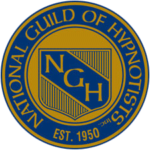This post contains text that was selectively copied and pasted from different authors. All rights belong to the original authors. Click the links under each section to read more from them since the text below is only a selection of what they wrote. Shared here for educational purposes only.
Quotes: From Dr. Weil
What therapies does Dr. Weil recommend for schizophrenia?
Although conventional therapy can often have unpleasant side effects, it is advisable to find a drug regimen that effectively addresses symptoms and minimizes problems. Dr. Weil suggests actively seeking a psychiatrist who can create an integrative treatment plan, one that focuses on using conventional therapies that produce the least side effects along with the following suggestions:
Dietary changes: Increase intake of omega-3 fatty acids. Studies indicate that people with schizophrenia tend of have low blood levels of these essential fats. One Australian study found that fish oil capsules given to young people at high risk for developing schizophrenia dramatically lowered the incidence of the disease compared to a control group. Omega-3 fats can also help lift depression as well as treating other mood disorders. Aside from fish oil capsules, the best dietary sources of omega-3s are salmon, sardines, and other cold water fish, as well as walnuts and flaxseeds. In addition, eat an anti-inflammatory diet and include an antioxidant multi-vitamin/mineral supplement to ensure you are meeting your nutritional needs for all the essential nutrients.
Exercise: Preliminary studies indicate that exercise therapy has benefit in both preventing and alleviating schizophrenia. Numerous studies have demonstrated the efficacy of a daily workout for improving emotional health and boosting self confidence. Dr. Weil recommends thirty minutes of continuous physical activity, at least five days a week for best results.
Mind/body medicine: Since stress can trigger or exacerbate schizophrenic episodes, learning and practicing stress reduction techniques may be of value. Consider Dr. Weil’s breathing techniques and learn how to meditate, practice yoga, exercise, or find other ways to relax that are personally appealing.
Source: https://www.drweil.com/health-wellness/body-mind-spirit/mental-health/schizophrenia/
Quotes: From Dr. Christopher Palmer
Chronic Schizophrenia Put Into Remission Without Medication
New research suggests ketogenic diet may play a role in treating schizophrenia.
Christopher M Palmer M.D.
Advancing Psychiatry
What Causes Schizophrenia?
No one knows for sure what causes schizophrenia. Most clinicians and researchers think it involves a chemical imbalance. This refers to neurotransmitters in the brain—chemicals that send messages from one brain cell to another. This theory has largely focused on excess activity of a neurotransmitter called dopamine—primarily because all antipsychotic medications block dopamine receptors. While there is a lot of evidence to support the dopamine theory, many current treatments designed around it have come up short. The treatments appear to only affect some of the symptoms, not all of them, and don’t change the course of the illness itself.
Other researchers think of schizophrenia as a neurodegenerative disorder. There is evidence that the brains of people with schizophrenia are different than other people’s brains, and can change over time. Some of the changes observed include shrinking of some brain regions, and changes in the connections between different brain regions.
However, emerging evidence suggests that something else might be behind schizophrenia. Attention has turned to bioenergetics, or energy production in the brain cells. It is well known that people with schizophrenia are three times more likely to develop diabetes. A common debate in the field is whether the antipsychotic medications, which are known to cause weight gain and diabetes, are to blame. Recent research suggests that this is not the entire explanation. Even people newly diagnosed with schizophrenia appear to already have insulin resistance, even though most don’t yet have diabetes. This means that their brains may not be getting enough energy from glucose. Other brain studies have found metabolic abnormalities, such as higher levels of oxidative stress and inflammation as well.
The medical version of the ketogenic diet is a high-fat, low-carbohydrate, moderate-protein diet proven to work for epilepsy. In my article The Ketogenic Diet May Help Stop Seizures, I explain the history and research demonstrating that the ketogenic diet is a powerful intervention in treating epilepsy. While referred to as a “diet,” make no mistake: this is a powerful medical intervention. Studies show that over 50 percent of children with epilepsy who do not respond to medications experience significant reductions in the frequency and severity of their seizures, with some becoming completely seizure-free.
Using epilepsy treatments in psychiatry is nothing new. Anticonvulsant medications are often used to treat psychiatric disorders. Depakote, Lamictal, Tegretol, Neurontin, Topamax, and all of the benzodiazepines (medications like Valium and Ativan, commonly prescribed for anxiety) are all examples of anticonvulsant medications routinely prescribed in the treatment of psychiatric disorders. Therefore, it’s not unreasonable to think that a proven anticonvulsant dietary intervention might also help some people with psychiatric symptoms.
Interestingly, the effects of this diet on the brain have been studied for decades because neurologists have been trying to figure out how it works in epilepsy. This diet is known to produce ketones which are used as a fuel source in place of glucose. This may help to provide fuel to insulin resistant brain cells. This diet is also known to affect a number of neurotransmitters and ion channels in the brain, improve metabolism, and decrease inflammation. So there is existing science to support why this diet might help schizophrenia
More Evidence of the Ketogenic Diet for Schizophrenia
While inspiring, these two case reports aren’t the first of their kind. They join a growing body of evidence supporting the use of the ketogenic diet in the treatment of schizophrenia.
Schizophrenia in 1965
In 1965, ten women hospitalized with schizophrenia who were already receiving medications and electroconvulsive therapy (ECT or “shock therapy”) were also placed on the ketogenic diet for a month. The researchers reported that their symptoms improved after two weeks on the diet, but then returned back to their baseline level of symptoms after the diet was stopped.
Schizoaffective disorder in 2017
In 2017, I reported two other cases of schizoaffective disorder improving significantly on the ketogenic diet. Schizoaffective disorder is a diagnosis that includes both a mix of schizophrenia and a mood disorder, often bipolar disorder. One man and one woman, both in their 30’s, had suffered treatment-resistant schizoaffective disorder for years. On the diet, their symptoms were greatly improved, and they both lost significant amounts of weight. Off the diet, their symptoms returned.
Schizophrenia in Ecuador
In 2018, two Ecuadorian twins, one male and one female, diagnosed with schizophrenia since the ages of 14 and 18 were started on a 6-week trial of the ketogenic diet. This study had a psychiatrist rate each twin’s symptoms while being unaware of their diet status. Interestingly, only when the patients were compliant with the diet did their symptoms improve. They also both lost weight. When they stopped the diet at the end of the study, their symptoms returned to their baseline level.
Christopher M. Palmer, M.D., is a Harvard psychiatrist and researcher working at the interface of metabolism and mental health. He is the director of the Department of Postgraduate and Continuing Education at McLean Hospital and an Assistant Professor of Psychiatry at Harvard Medical School.
Source:
Quotes: From Dr. Axe
Positive Symptoms of Schizophrenia
Hallucinations — Hallucinations involve a sensory perception of something that isn’t actually real.
Delusions — While these are often confused with hallucinations, delusions are strongly held (false) beliefs in something, despite evidence to the contrary. This symptom is also present in obsessive-compulsive disorder.
Thought disorders — Disorganized, illogical speech patterns are one major sign of thought disorders, a symptom characterized by dysfunctional thinking patterns.
Negative Symptoms of Schizophrenia
Flat affect — Also recognized as a symptom of traumatic brain injury, autism and depression, flat affect is a lack of emotional expression. Someone with flat affect will feel emotions but not express them outwardly.
Reduced pleasure in daily life
Difficulty with beginning or sustaining activities
Reduced speaking
Cognitive Symptoms of Schizophrenia
Poor executive functioning — A mentally healthy person uses “executive functioning” every day without ever realizing it. However, this process of integrating information and making decisions with that information is much harder for those with schizophrenia.
Attention issues
Working memory dysfunction — Similar to the way your computer has a working memory of the information you entered and used in the past several minutes, your brain also has “working memory.” Peolpe with schizophrenia have trouble using information immediately after learning it.
To diagnose schizophrenia, a qualified medical professional should observe at least two of the following symptoms for a one-month period of time (one of which must be in the first three symptoms listed): (5)
Delusions
Hallucinations
Disorganized speech
Disorganized or catatonic behavior
Negative symptoms
Unlike the NIMH and NAMI, the DSM-V criteria define symptoms as falling into only negative and positive symptoms. During the six months prior to diagnosis, the psychiatrist should also see evidence of “prodromal or residual symptoms,” meaning less-outwardly severe negative symptoms before or after active positive symptoms.
Causes and Risk Factors
Like all mental illnesses, the schizophrenia spectrum has a combination of causes and risk factors that can only be somewhat defined. However, there are several physiological signs and risk factors associated with schizophrenia. Known causes and/or risk factors for schizophrenia include:
- Multiple gene encoding errors/malfunctions (7, 8)
- Smaller mass of brain matter (particularly for early-onset symptoms) (9)
- Decreased immune system function (10)
- White matter abnormalities in the brain (11)
- Excessive free radical activity (12, 13, 14, 15)
- Celiac disease (16)
- Small gestational size in utero and a mother who bled during pregnancy (17)
- A family member with schizophrenia, especially a mother, father or sibling (18)
- Infection with T. gondii, a parasite that causes toxoplasmosis, sometimes caused by a household cat (19, 18)
- Being born or raised in an urban area (20, 18)
- Use of cannabis (18)
- Autoimmune disease (21)
- Childhood sexual abuse (lower but still significant risk) (18)
- History of traumatic brain injury (lower but still significant risk) (18)
- Birth complications (lower but still significant risk) (18)
Dietary Alterations
Like all conditions, schizophrenia onset is affected, in part, by what a person eats. There is evidence, for instance, that celiac disease may be a precipitating factor for the illness. (16) Having excessive free radical damage and not enough antioxidants circulating is also connected to a higher risk of schizophrenia. (12, 13, 14, 15)
Another dietary risk factor for symptoms of schizophrenia (and their progression) is poor metabolism of essential fatty acids (EFAs). (31) Two fatty acids, arachidonic acid (AA) and DHA, are much lower in patients suffering from schizophrenia and may be increased by some antipsychotics, one possible reason these drugs decrease symptoms. (32)
However, a diet for schizophrenia mirroring what we already know about treating food as medicine will be beneficial for maintaining lower weights and overall health — but it may not help to treat the condition.
For example, a 1999 clinical trial observed participants with schizophrenia eating and supplementing their diet based on food sensitivities and nutrient deficiencies. After five months, patients had improved the blood levels of their nutrients, but no direct symptoms of schizophrenia. (33)
However, that doesn’t mean diet has no impact on this disease. In fact, the ketogenic diet for schizophrenia may be one of the most novel ways to treat symptoms of schizophrenia. The keto diet is a low-carbohydrate, high-fat dietary regimen, first developed in the 1920s for epilepsy. It’s been the subject of both mental illness research and trendy weight loss blogs as of late. Drastically restricting carbohydrates and loading up on fats leads to a bodily process known as ketosis, in which you no longer uses glucose as an energy source and instead rely on ketones from the liver. After the brain transitions from using glucose to ketones and ketosis sets in (between one and seven days), the brain starts using ketones, which affects the way it operates.
There are some impressive case studies (and follow-up animal research) that suggest keto might be a revolutionary natural treatment for schizophrenia. Among the most popular are cases of two women and one man with schizophrenia or schizoaffective disorder who experienced a drastic reduction in all symptoms of schizophrenia while following the diet. (34, 35, 36, 37)
A 2017 review discussed the use of the ketogenic diet in schizophrenia (and other psychiatric disorders). In this review, a small, uncontrolled study in 10 women completed in 1965 (before the dawn of modern antipsychotic drugs) was explained, in which woman on the diet had a “statistically significant decrease in symptomatology” after two weeks. (38)
Now, animal research is being conducted to lead the way into human clinical trials. The first 2015 study found that animals on the ketogenic diet weighed less on average than their placebo counterparts and had less “pathological behaviors” associated with a schizophrenia model in animals. (39, 40)
Why does the ketogenic diet seem to work for schizophrenia? Perhaps it’s because there’s little to no gluten or processed foods on a good ketogenic diet food list, which are known to negatively impact people with risk for schizophrenia? Or maybe it’s the way the keto diet increases antioxidant production and activity? (41) The mechanism is unclear.
A healthy alkaline keto diet consists of foods like:
- Healthy fats (avocado, ghee, MCT oil, coconut oil, olive oil, flaxseed, butter)
- High quality proteins (grass-fed beef, organ meats/offal, turkey, chicken, eggs, tuna, salmon, mackerel)
- Non-starchy veggies (collards, arugula, kale, spinach, broccoli, Brussels sprouts, cauliflower, celery, cucumber, asparagus, tomatoes)
- Bone broth
- Low- or no-carb condiments (spices/herbs, hot sauce, apple cider vinegar, unsweetened mustard)
- Drinks (water, unsweetened coffee/tea, full-fat cow’s/goat’s milk, fresh vegetable juice, sparkling water)
- Full-fat cheeses (in moderation)
- Nuts and seeds
Community-Based Recovery Models
Though it may sound impossible to most people, there are low- or no-medication options for recovery from symptoms of schizophrenia that rethink the entire idea behind conventional treatments.
One such method is known as the Soteria paradigm. Founded in the 1970s, Soteria is a community-based recovery model for schizophrenia and related disorders focused on the growth, learning and development for diagnosed patients. Rather than being seen as patients who need to be fixed or controlled, residents at Soteria houses share tasks and responsibilities with staff members. They are given education about their illness and empowered to learn ways to take their future into their own hands.
Reviews of this model have turned out very promising results — residents at Soteria houses have equal or better results than patients treated at traditional psychiatric hospitals and in as little as six weeks. One review remarked that between 85–90 percent of these residents are able to go back to their home and regular routine without taking medication even once! (42, 43) Another reviewer stated that: “Soteria acts like a neuroleptic drug, but without its unfavorable side effects.” (44)
Similar community-based recovery models have been used with results matching those of Soteria. Patients not required to take drugs, and given information about what they were facing reported, as long ago as the 1970s, that their lives were enhanced and the information they received was gratifying and empowering. On the other hand, comparable patients treated in the traditional model expressed frustration and said they were “frozen in the psychosis.” (45)
These results support the Cochrane review about psychoeducation, in which they reviewed available research about what happens when patients are educated about the treatment and symptoms of schizophrenia to find the best possible path to a positive outcome. They concluded: “Psychoeducation does seem to reduce relapse, readmission and encourage medication compliance, as well as reduce the length of hospital stay.” (46)
Supplements
A number of dietary supplements have been studied in conjunction with schizophrenia and showed positive results. While a few of these are typically tested for the reduction of medication side effects or other secondary issues, the majority of them help to reduce actual symptoms. An example of supplements for schizophrenia include:
- Omega-3s (47, 48, 50)
- Vitamin D (51, 52)
- L-lysine (53)
- B-complex vitamins (B1, B3, B6, B9, B12) (54, 55)
- Vitamins C and E (56, 57, 58)
- American ginseng (59, 60)
- Sarcosine (also called glycine or N-methylglycine) (61, 62, 63, 64)
- Ginkgo biloba (65, 66, 67, 68)
- Melatonin (to improve sleep quality) (69, 70, 71, 72)
- N-acetylcysteine (NAC or L-cysteine) (73)
- D-alanine (74)
- Bacopa monnieri (75, 76)
- Choline (77, 78, 79)
Therapy
Like I mentioned, therapy (subsequent to antipsychotic drugs) is used in conventional treatment of schizophrenia. However, it’s also a completely natural way to deal with schizophrenia and may be tried as an alternative to medication, under proper supervision.
The various types of therapy that may be effective for schizophrenia include:
Cognitive Behavioral Therapy (CBT): This psychotherapy focuses on revealing and changing thought patterns and reactions that are unhealthy therefore altering outward behavior. However, in a Cochrane review, researchers stated, “Trial-based evidence suggests no clear and convincing advantage for cognitive behavioral therapy over other — and sometime much less sophisticated — therapies for people with schizophrenia.” (80)
EMDR: Eye movement desensitization and reprocessing (EMDR) is a popular psychotherapy used to remove stress and fear associated with traumatic memories. EMDR may be particularly effective for people with schizophrenia with PTSD symptoms. (81)
Music Therapy: In a Cochrane review, researchers found that music therapy (in addition to “standard care”) helped to improve “global state, mental state (including negative and general symptoms), social functioning, and quality of life with schizophrenia or schizophrenia-like disorders.” (82)
Animal-Assisted Therapy (AAT): A complementary form of standard therapy, animal-assisted therapy incorporates comforting animals into treatment and may help improve social interactions, general well-being and activities of daily living for individuals with schizophrenia. (83)
Morita Therapy: This case-based therapy is a four-stage, progressive process designed to help individuals accept life “as-is” before trying to make major changes. While all results are preliminary, a Cochrane review did find Morita therapy to be modestly effective in treating schizophrenia. (84)
Final Thoughts
Schizophrenia is a mental illness experienced by about 1 percent of the world population (with a slightly higher occurrence in the U.S.). (91) While it is often seen as a completely debilitating disorder, there is a lot of hope for natural ways to manage schizophrenia.
Typically, individuals are diagnosed with schizophrenia during early adulthood. However, it may be diagnosed (rarely) in children or middle-aged adults. Men present with full psychosis a little earlier than women, but this mental illness affects both genders equally.
Doctors diagnose schizophrenia by three basic types of symptoms: positive, negative and cognitive.
Conventional treatment of schizophrenia focuses on first-line drug treatment with antipsychotics/neuroleptics. Therapy and electroconvulsive therapy (ECT) are also used secondarily to these drugs.
Many patients with this disorder have issues with compliance, meaning they don’t keep taking prescriptions they are given due to a combination of factors.
Note: Do not discontinue your prescriptions without supervision by a qualified medical professional
Source:
Dr. Abram Hoffer
Dr. Abram Hoffer, MD, PhD, would tell you that Vitamin B3 was very important in curing schizophrenia. His method is now called Orthomolecular medicine. He passed away at the age of 92. see www.doctoryourself.com for more info







